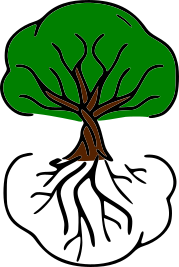In Literature Appetizer, Ben gives you just a taste of a book. Not meant to replace the full meal, this is meant to whet your appetite. Bon appetit!
This is one of my favorite pictures of my father. Last week while my family was in Florida Dad asked me if I wanted to go and see the animals he saw earlier that day. Being that I love exploring ecoregions with my dad, we stepped outside to the local pond.
We saw at least a half dozen types of birds (including egrets), fish, and mammals. But in the pond, my father told me, was a red eared-slider turtle that got close to him earlier that day. We went to the same location and within a minute this little turtle came up real close.
Dad recognized that this turtle was only approaching thinking he had food, and we came to the conclusion that people feed the animals here often (even though it is dangerous for all life to do so). But out of this terrible action that our fellow humans do, we were able to find joy in getting so close to a creature that is often too scared to approach. While we humans living in the 21st century think that wildlife preservation and animal rights are new issues, it has been a topic for at least a 1,000 years.
The modern adaptation of The Animal’s Lawsuit Against Humanity was translated from an 1,000 year old Iraqi tale by two modern day Rabbis; Dan Bridge and Anson Laytner. They changed some aspects (like making the human characters in the book more representative of human and not just old men) but kept the meaning of the ancient tale. When the book was finished it was published in Kentucky and illustrated by a Muslim woman, Kulsum Begum.
While the publishing story of this adaptation shows the best that humanity has to offer, the text itself shows humanity at its worst. In this story some humans are treating the work animals with utmost cruelty; beating them when they are not working fast enough, keeping them chained against their will, and separating them from their young. The animals, who can think and talk with one another, send a desperate plea to the King of Spirits to find in the court of law that humans are treating the animals unjustly.
This fascinating read talks about the same issues we are facing to this day. Should we keep cows in covered feedlots and only feed them corn mixed with anti-biotics for their entire short life, or is there a better way? Should we only give bees high fructose corn syrup laden with pesticides, or is there another way?
I think in the end, this book can spark a discussion about how we live with the rest of the planet. Yes, humans are different than cows. But so are cows different from sheep. All three groups are different from one another and yet we are all mammals. We wouldn’t expect each to play each other’s role, but each is worth treating with utmost respect.


